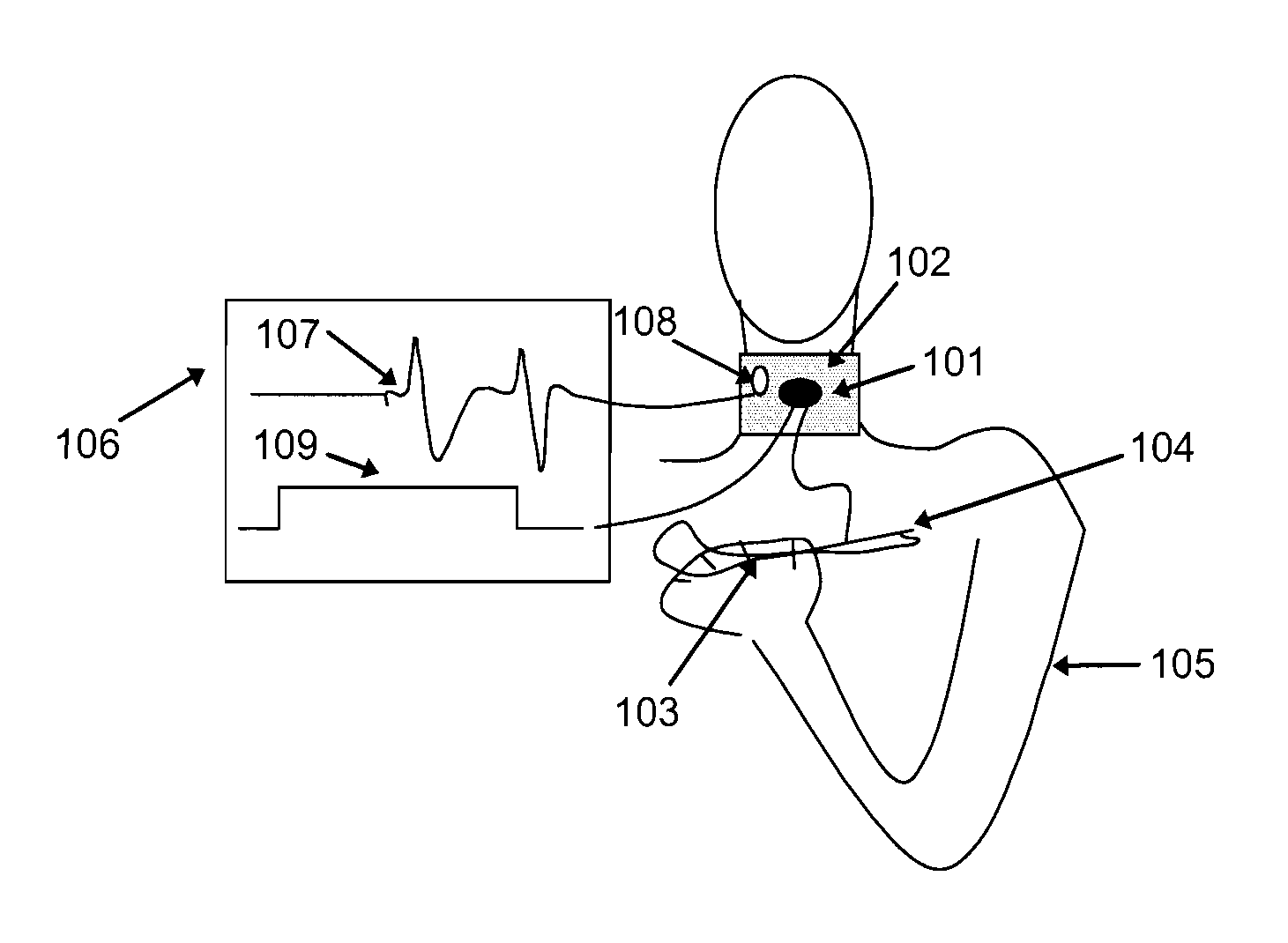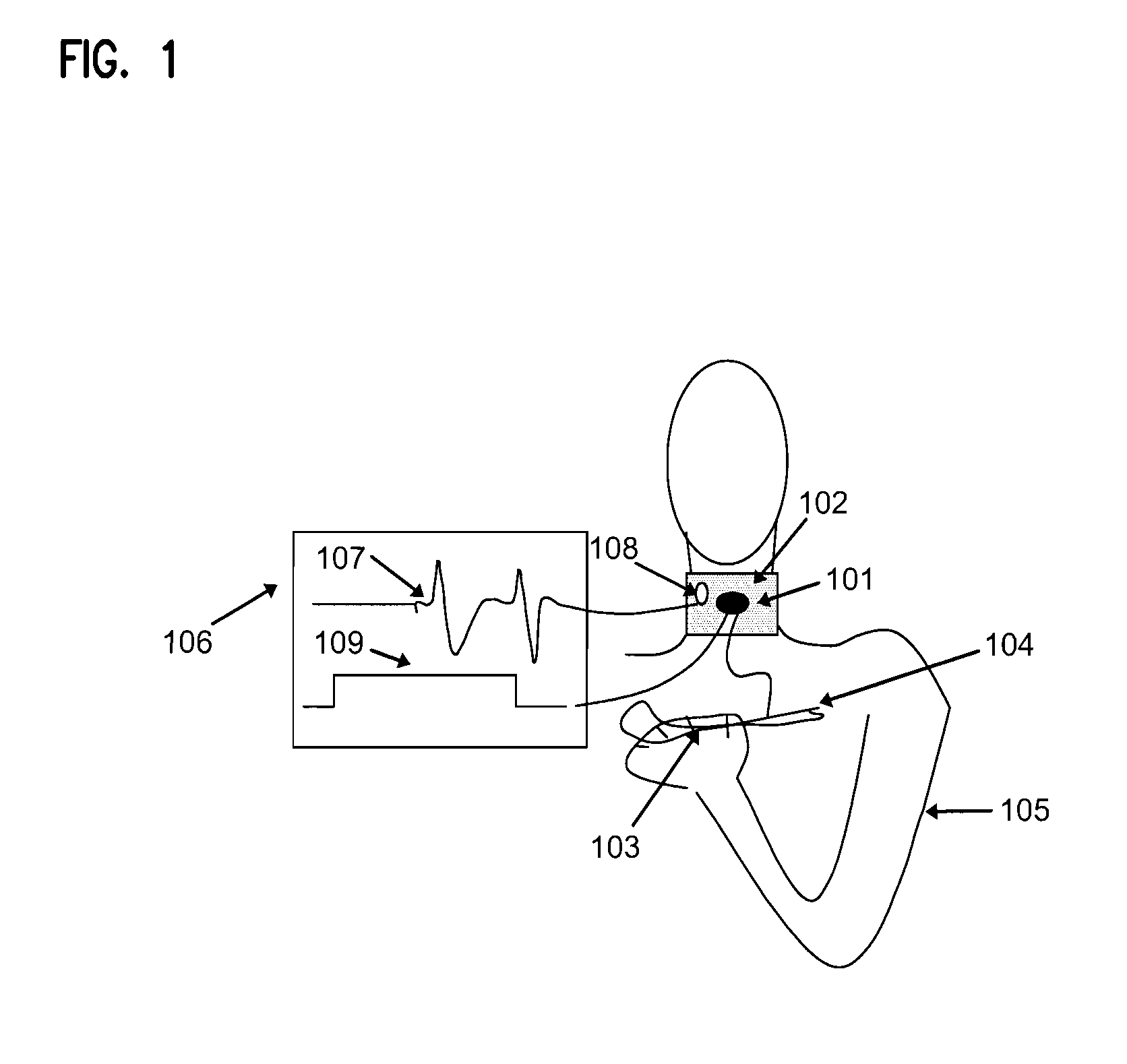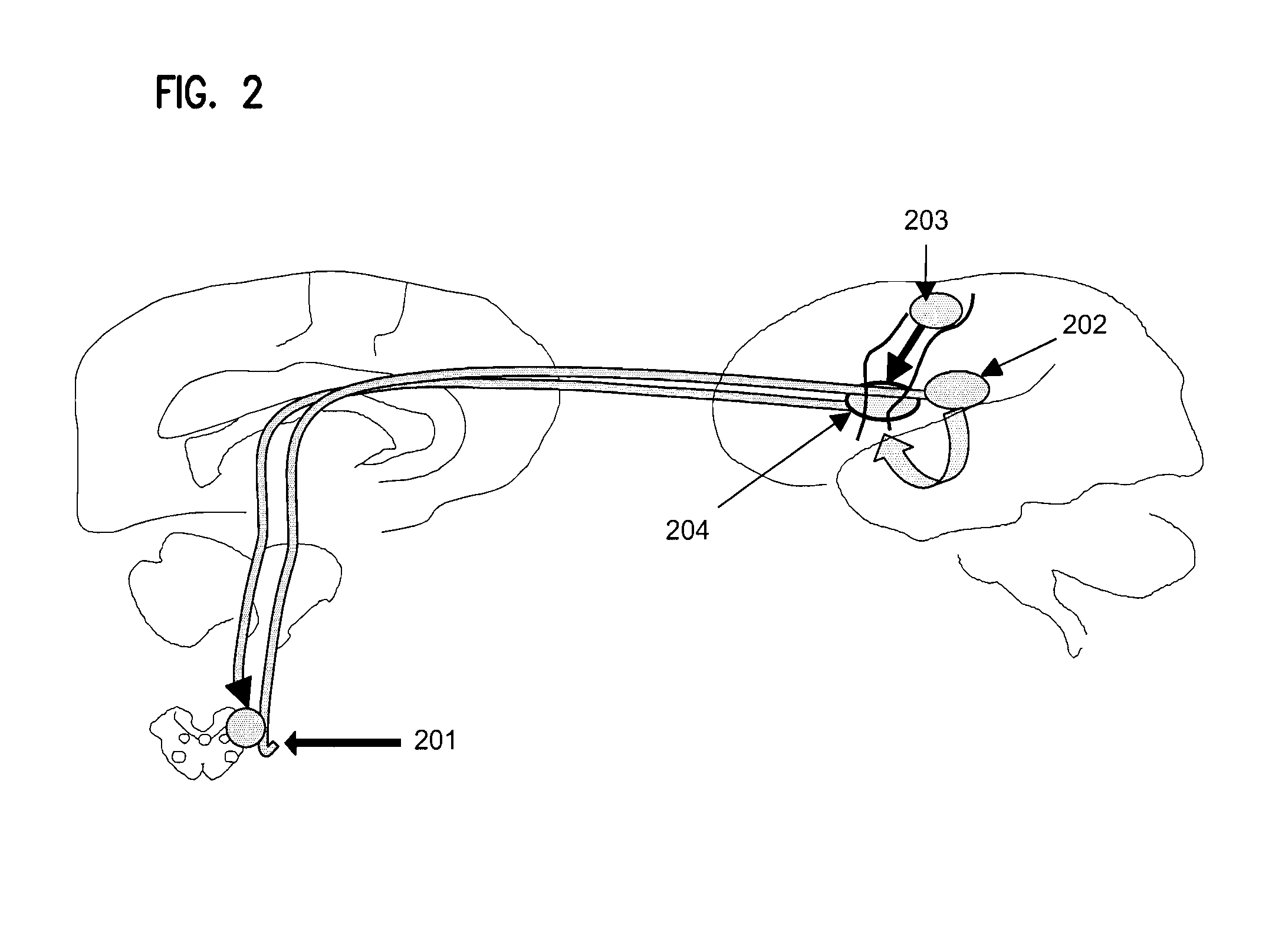Device for volitional swallowing with a substitute sensory system
a sensory system and swallowing technology, applied in the field of swallowing swallowing devices with a substitute sensory system, can solve the problems of not being able to prevent food or liquid from entering, affecting the life of people at risk of aspiration pneumonia, and not being able to address the well-known neurological diseases and disorders
- Summary
- Abstract
- Description
- Claims
- Application Information
AI Technical Summary
Benefits of technology
Problems solved by technology
Method used
Image
Examples
Embodiment Construction
[0024]It was discovered that neurologically impaired patients with dysphagia could improve voluntary initiation of swallowing and thus alleviate their risk of aspiration while swallowing, by motor act habituation such as pressing a button to indicate when they feel ready to swallow. By way of example and not limitation, such motor training produces concurrent sensory stimulation that induces a central pattern that produces the related effect of swallowing. This principle is applicable to other neurological impairments, their associated motor act habitations and related sensory stimulations. Neurological impairments that are contemplated include reflex actions that involve interactions between afferent and efferent paths, at the spinal cord or in the brain stem, as well as higher order interactions.
[0025]Embodiments contemplated cover methods for treating neurologically impaired humans, devices useful for such treatments, such as those that produce deglutition stimulation and vocaliz...
PUM
 Login to View More
Login to View More Abstract
Description
Claims
Application Information
 Login to View More
Login to View More - R&D
- Intellectual Property
- Life Sciences
- Materials
- Tech Scout
- Unparalleled Data Quality
- Higher Quality Content
- 60% Fewer Hallucinations
Browse by: Latest US Patents, China's latest patents, Technical Efficacy Thesaurus, Application Domain, Technology Topic, Popular Technical Reports.
© 2025 PatSnap. All rights reserved.Legal|Privacy policy|Modern Slavery Act Transparency Statement|Sitemap|About US| Contact US: help@patsnap.com



